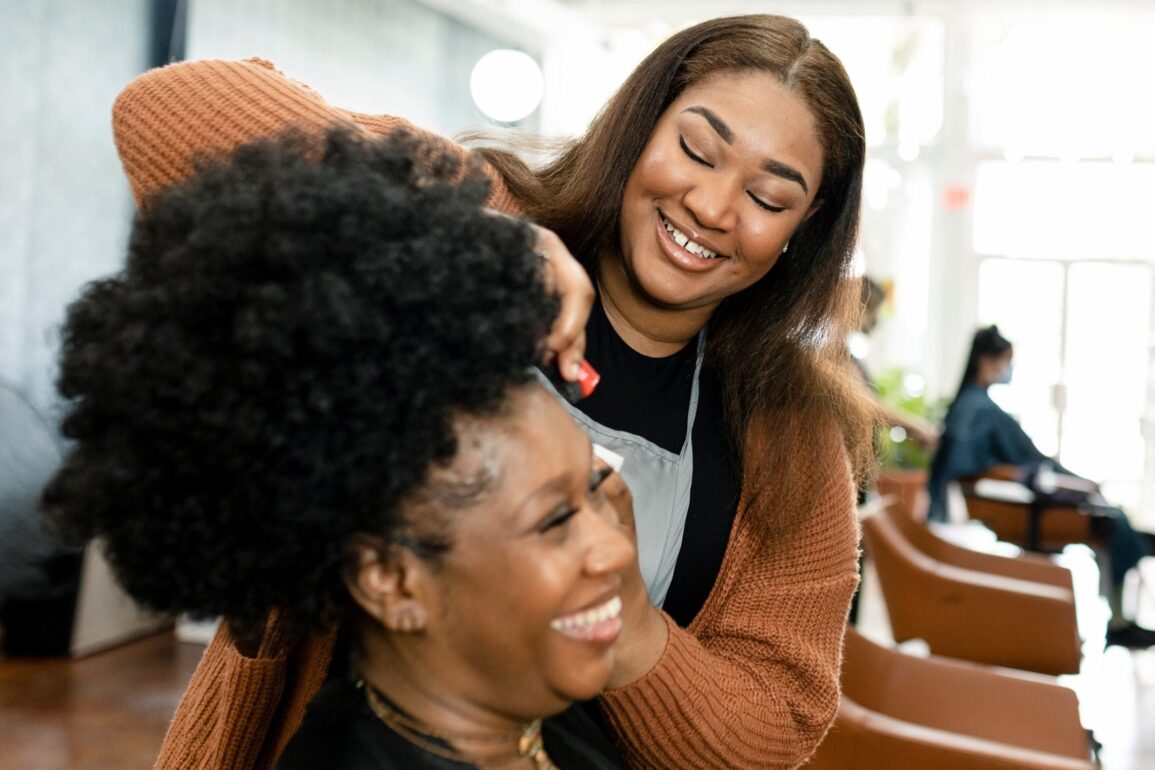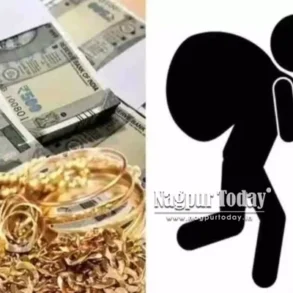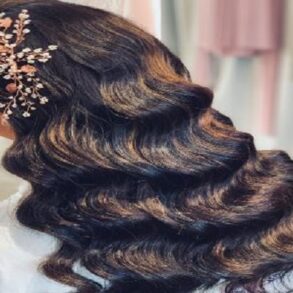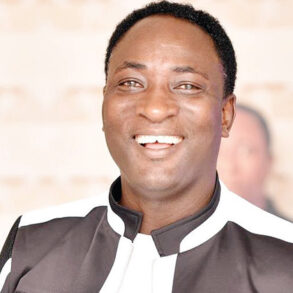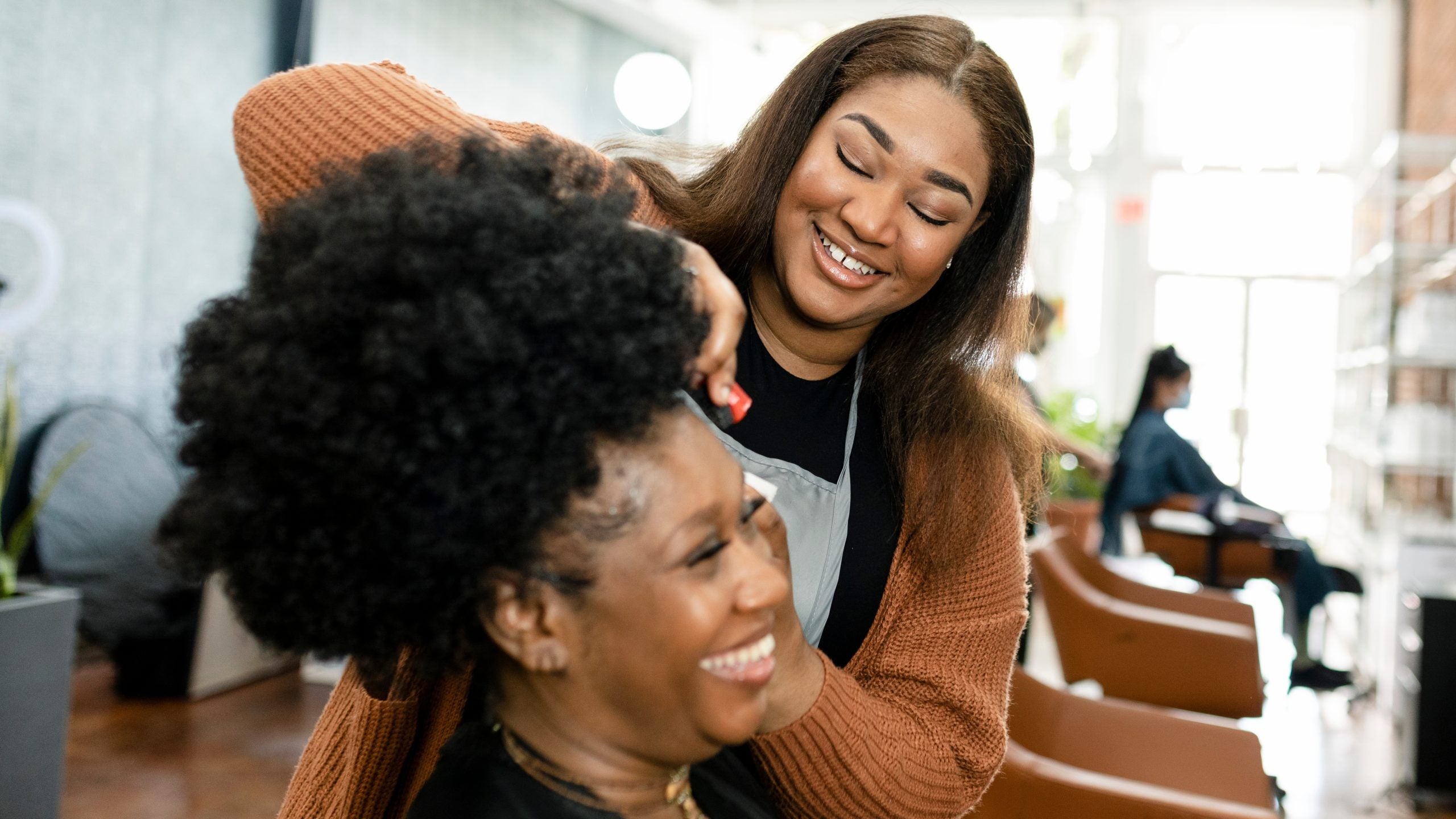
It’s safe to say that the Black salon experience has evolved. The hair salon has long served as a space for Black women to express themselves, be catered to, and learn how to properly maintain their hair. Today, many Black women describe their hair salon experience as a nightmare — fueled by deposit fees, late clients, and unprofessionalism.
These days, most stylists require clients to send a deposit and come washed and blow dried ahead of the appointment. Simultaneously, stylists deal with clients that don’t respect boundaries by coming late to appointments and clients who refuse to pay the price listed. Both parties are frustrated with the current state of hair salon culture, causing many Black women to feel as if the community element of the hair salon is disintegrating and transactional.
This leaves us with one question. Is the magic of the old school hair salon gone forever? To help us reflect, salon goers and hair professionals share their thoughts below.
Clients Are Tired Of The Grass Wall Stylists
This social media Black hair community has introduced a new term to the Black beauty ecosystem — “Grass Wall Stylists.” This popular social media term is used to describe hair stylists who prioritize the aesthetics and quality of their hair content and studio over professionalism and quality service. These hairstylists often decorate their spaces with grass wall paneling and expensive LEDs– which they often use to justify an inflated price. Sports professional , for example, at times found herself preparing for a mental battle zone before booking with Grass Wall Stylists.
“Once upon a time, getting your hair done wasn’t the equivalent to the hunger games,” Gibson tells ESSENCE. “I used to be so excited to get my hair done, not just because of the result, but because of the experience. You don’t have that anymore.”
The distrust in stylists has increased because of clients not trusting stylists to maintain the integrity of their hair. Instead, clients feel that stylists would rather promote viral styles that fit their Instagram aesthetics like the boho faux locs or the boho knotless braids.
Celebrity photographer, Grace Bukunmi, says hairstylists should encourage us to not only have proper hair care but also walk out feeling good about our hair. “My stylist in LA kept encouraging me to go blonder for years,” Gibson adds. “It wasn’t until I went abroad that I was told to stop dying my hair because it was damaged beyond repair. My LA stylists still encouraged me to go blonder even if it meant ruining the integrity of my hair.”
Meanwhile, lab scientist Teya Eshelman experienced a stylist causing major damage to her curls after her first time back in a salon since she was a kid.
“I felt rushed and whenever I would ask questions the stylist would make me feel dumb. My stylist double booked me and her other client. Because of this,my newly bleached hair was under the dryer for too long which damaged my regrowth. She did not apologize or follow-up with a hair treatment regime.”
To add, stylists are setting expectations that they can’t keep. Most stylists charge fees for a number of things. If you’re 15 minutes late, that’s a $25 charge. If your hair is not straightened prior to the appointment…$75 charge, and so forth.
Additionally, clients feel that they are expected to give stylists grace even when the expectation is not exchanged in return.
“I think that it’s definitely changed. Back then you could get your hair washed and blown out. Now they charge for everything,” says media host Thembi Mawema. “If you’re going to have a time cut off or fee, you also need to be flexible as a stylist. I think it needs to be equitable, and it needs to make sense. It shouldn’t only be favorable to the stylist. It feels more like a form of greed and not customer service.”
The Grass Ain’t Greener On The Other Side For Stylists
Stylists are also getting burned by the hot comb. According to hairstylist and entrepreneur Nigella Miller, after the pandemic, stylists found themselves pivoting from larger spaces to smaller spaces due to clients valuing one-on-one salon experiences and the hefty costs of maintaining a brick and mortar salon.
“I realized that working in all of the big salons that a lot of people were unhappy about not having the right amount of attention from the stylists they came to see,” Miller says.
Clients are also guilty of coming late to appointments, canceling at the last minute or even refusing to pay. Videos on TikTok are surfacing of clients running off on their stylists after spending 8+ hours on a braided hairstyle.
For that reason, celebrity hair stylist Lola Benson no longer has her website linked on her Instagram page.
“All of my clients I receive from word of mouth,” Benson says.
“It is easier for me to vet these clients to see if they would be a good fit as well to avoid any negative confrontations.”
At the same time, professional stylists are feeling the wrath of the new grass wall stylists. The new school stylists lack proper hair school knowledge and are giving a bad rep to all stylists.
“What you learn in a shop and what you learn in hair school are two different things,” says Miller. “A lot of stylists lack the experience or understanding of what it’s like to have salon etiquette and what it’s like to show up as [their] best self, physically and mentally. Those are the things you get taught in school.”
Since new age stylists are working from a suite or working from home, they don’t rely on the traditional hair salon to handle marketing, finance, communications, or even sweeping up hair. Often, stylists find themselves playing multiple roles and it can be overwhelming if they don’t have a team for support, Co-Founder of LA Beauty Club Sheva Ahmadi says.
Your Mother’s Beauty Salon No Longer Exists
There are more options for finding a stylist than ever before for Black women. Stylists have pivoted to Instagram and other social media platforms to promote their talents.
“It’s almost like the Tinder or Bumble effect where you can just swipe right on someone,” says Ahmadi. “I feel like there’s such a disconnect with the internet, which is creating a culture of disposability. It makes consumers and clients feel disposable because there’s always someone they can book. Now more than ever you see clients having one person for braids, one person for a sew-in and another stylist for a silk press.”
What’s In The Future For Black Hair Salons?
The Black hair salon landscape has hit a breaking point for both clients and stylists. As larger salons dwindle, it seems as though there will continue to be an increase in Instagram stylists, freelancers and smaller suites. The old days of going to a brick and mortar beauty salon are behind us. The future of the Black hair experience requires clients to do more research on the stylists they book with and stylists to be more intentional about the clients they style.
Content creator Joanna Georges, whose TikTok video went viral for bringing a Jersey City hair stylist to small claims court for taking her deposit after not showing up to the appointment. George’s experience with the Jersey City Instagram stylist taught her a valuable lesson in life — do your research!
When making appointments with a new stylist, it is important to take proper precautions, explained Georges. “Unfortunately, you can’t blindly trust or go to a stylist without vetting them.”
“Number one, if you are not going to a salon, I would DM the person and ask if they are licensed and if they say no don’t go to them,” said George. “A licensed stylist can be held accountable if your hair gets damaged. Next step is to DM the clients that follow the page or are featured on the page and ask them about their experience with the stylist. It doesn’t hurt to get real life customer reviews.”
The Black Hair Experience And Community Are One
The Black hair salon experience does not exist without community. Having a bomb hairstyle and a bad experience does not equate to feeling beautiful. Late clients, lack of hair integrity and unnecessary deposit fees are causing the Black hair community’s safe space to become an uncomfortable environment. Black women set hair trends and movements around the world. But why is it that we are last on the totem pole when it comes to our experiences in the world?
Feeling beautiful and building community relies on communication, respect and the intimate moments leading up to the final hairstyle. How will the Black hair community evolve in a positive way? How will we respect the legacy of the Black hair salon that our mothers and grandmothers built and fought for?
This post was originally published on this site be sure to check out more of their content.




